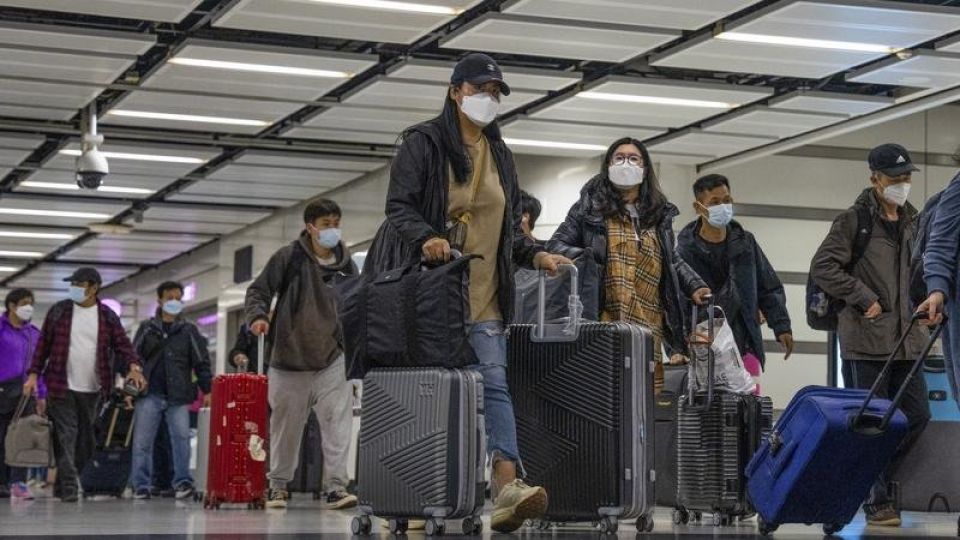February 6, 2023
HONG KONG – Representatives from various sectors on Friday said the upcoming full resumption of Hong Kong-mainland travel is a major step forward in the city’s effort to return to social normalcy and deepen cross-border connections in all fronts.
The move will also enable those with frequent travel needs — including cross-border students — to return to a normal, pre-pandemic life.
Their remarks came after authorities in Hong Kong and the mainland announced the scrapping of travel-quota limits and COVID-19 test requirements for cross-boundary passengers, and the reopening of all cross-border checkpoints effective Monday.
Leung Chun-ying, a vice-chairman of the National Committee of the Chinese People’s Political Consultative Conference, said in a social media post that he will lead an 80-member delegation, including representatives from 29 business and social organizations, to Guangzhou’s Nansha district on Monday to explore business opportunities.
The border’s full-scale reopening will further help the city’s integration into the country’s overall development, said Leung Chun-ying
He said he believes the border’s full-scale reopening will bring more Hong Kong people to the mainland and further help the city’s integration into the country’s overall development.
Angus Ng Hok-ming, chairman of the Guangdong-Hong Kong-Macao Greater Bay Area Youth Association, said that after Monday, he will organize more exchange activities and internship program to promote interaction and integration between young people in Hong Kong and the rest of the Greater Bay Area.
Chu Xiuyun, a mother to a 13-year-old cross-border student, said she was glad to hear about the reopening of the Lo Wu checkpoint, which is near her home in Shenzhen. She was also happy about the lifting of travel quotas and COVID-19 tests for cross-boundary passengers, which will make it as easy for her son to commute between the two cities as it was three years ago.
The full-scale travel resumption with the mainland will allow more cross-border students to have face-to-face classes in the city, said Chu Wai-lam, principal of Hong Kong’s Fung Kai No 1 Primary School.
He said he believes secondary school students will return to Hong Kong first, as they are old enough to make the cross-border journey on their own. Students in primary schools must wait for school buses to resume service. Some students also need time to renew their respective travel documents to Hong Kong.
Chu said that after the full border reopening, the school will also restart face-to-face communication with mainland counterparts and study trips to mainland cities. Some senior students will go to sister schools in Foshan, Guilin or Beijing for exchange programs. More exchange activities among students will be held during the summer and Christmas holidays.
Frankie Yeung Wai-shing, chairman of the advisory panel of Xiqu Centre in the West Kowloon Cultural District, said the full resumption of travel will provide a boost to the city’s arts and culture development, which will help the sectors get a new start and seek brighter prospects with normal communication with the mainland.
The practitioners can recover exchanges with the outside world and participate in top international events with almost no barriers. The feasts to be held in Hong Kong will also see more participants and have a greater influence, he said.


